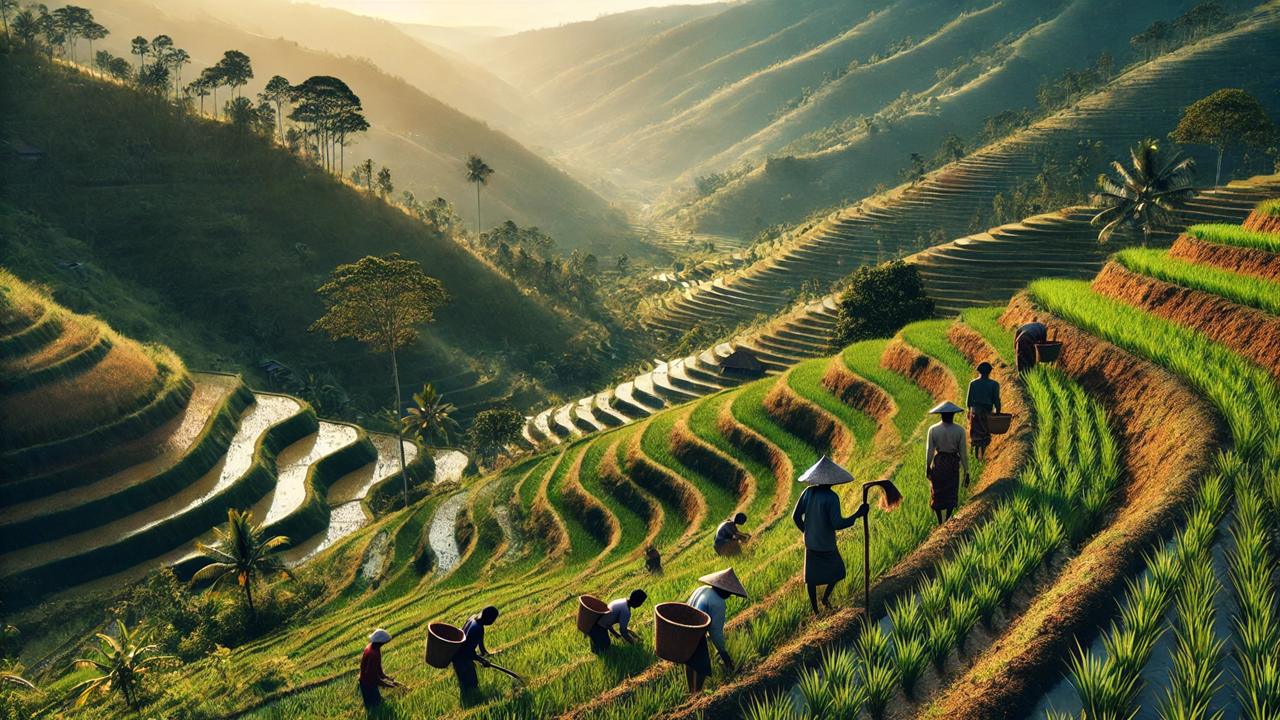Nepal Partners with IFAD on $120M Program to Aid Small-Scale Farming Families
“R-HVAP is a critical investment in Nepal's future,” said Roshan Cooke, IFAD Country Director for Nepal.

- Country:
- Nepal
The United Nations International Fund for Agricultural Development (IFAD) and the Government of Nepal have launched a transformative eight-year agreement worth $120 million to aid more than 250,000 small-scale farming families. The Resilient High-Value Agricultural Programme (R-HVAP), effective as of last month, aims to transition these farms toward sustainable commercial and agroecological practices across 80 municipalities in Lumbini, Karnali, and Sudurpashchim provinces.
Driving Sustainable Agriculture for Nepal’s Future “R-HVAP is a critical investment in Nepal's future,” said Roshan Cooke, IFAD Country Director for Nepal. He emphasized the program’s role in boosting food security, enhancing nutrition, and fortifying the resilience of Nepal's food systems while generating foreign exchange through improved agricultural productivity.
Nepal, where agriculture contributes roughly 25% to GDP and engages two-thirds of the population, faces escalating challenges such as food security and sovereignty due to heavy reliance on food imports. Over the past two decades, Nepal’s food import bill has soared 78-fold, underlining the urgent need for localized, self-reliant solutions.
Strategic Measures to Strengthen Food Systems R-HVAP aligns with the government’s Agriculture Development Strategy (2015–2035), which envisions a self-reliant, sustainable, competitive, and inclusive agricultural sector. The program introduces market-oriented agroecological practices, including five-year development plans, financial management training, and agroecology apprenticeships for youth. It also supports producer organizations in scaling their operations and fosters a network of micro, small, and medium-sized enterprises (MSMEs) to catalyze economic growth.
Key infrastructure initiatives include the development of small-scale irrigation systems, water storage, post-harvest processing facilities, and renewable energy technologies. A flagship component is the $40 million Semlar Agricultural Regional Wholesale Market in Butwal, strategically positioned near Gautam Buddha International Airport and the Indian border. The facility will significantly improve market access for smallholders, boosting both domestic sales and export opportunities.
Investment Breakdown and Collaborative Efforts Of the $120.9 million total program cost, IFAD is contributing $70.93 million, with the Government of Nepal providing $24.6 million. Additional contributions come from provincial and local governments ($2.02 million), producer organizations and participants ($20.87 million), and MSMEs ($2.56 million).
This initiative builds on decades of collaboration between IFAD and Nepal. Since 1978, IFAD has invested $409 million across 22 rural development projects in Nepal, benefitting 1.1 million families. Its work has focused on marginalized hill and mountain regions, where poverty is severe, and access to essential resources is limited.
Addressing Emerging Challenges Nepal's agricultural sector has faced compounded pressures from recent shocks like COVID-19 and the accelerating impacts of climate change. R-HVAP is expected to fortify Nepal’s food systems, empowering smallholders with the tools and training needed to achieve long-term resilience. By integrating modern technologies and market-oriented solutions, the program aims to ensure sustainable livelihoods while driving economic growth and reducing inequality.
This strategic partnership with IFAD underscores Nepal’s commitment to transforming its agricultural sector into a cornerstone of its economic development.
ALSO READ
Nepal Commission Seeks Extension on Gen Z Protest Probe
Nepal Marks Migrants Day 2025 With Call for Safer, Fairer Labour Migration
Nepal Amends Election Ordinance for 2026 HoR Elections
Nepal High Court Grants Rabi Lamichhane Bail in Fraud and Crime Case
Nepal Launches Ambitious Tiger Census in Protected Areas










